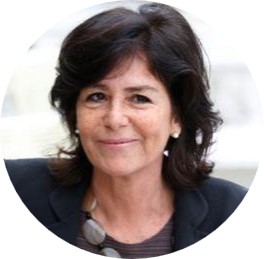The Wheeler Institute was very pleased to host Ayhan Kose, Deputy Chief Economist at the World Bank Group on Wednesday 19th February 2025 for a discussion on the future of emerging and developing economies (EMDEs) at London Business School.
Opening and closing remarks were made by the Dean of London Business School Sergei Guriev. Lucrezia Reichlin, Professor of Economics at the London Business School and Rajesh Chandy, Tony and Maureen Wheeler Chair in Entrepreneurship; Co- Academic Director of Wheeler Institute for Business and Development and Professor of Marketing at London Business School moderated the discussion.
Drawing on the January 2025 edition of the Global Economic Prospects report, Mr. Kose explored the forecast for global growth, which is expected to remain steady at 2.7 percent growth rate this year and next will be insufficient to foster sustained economic progress. Emerging market and developing economies—which began the 21st century making good progress on closing the income gap with advanced economies—are now, for the most part, falling farther behind. Most low-income countries are not on course to graduate to middle-income status by 2050. Policy uncertainty and the risk of trade disputes, geopolitical tensions, and climate-related natural disasters could further complicate the global economic outlook. What is next for emerging market and developing economies? What can policymakers do to accelerate growth?

A full write up of the event can be found here.
About the speaker

Ayhan Kose is the Deputy Chief Economist of the World Bank Group and Director of the Prospects Group, where he oversees global macroeconomic outlook, financial flows, and commodity markets. He leads the production of the Bank’s flagship reports, including Global Economic Prospects and Commodity Markets Outlook. Prior to the World Bank, Mr. Kose held key positions at the IMF, contributing to its analytical, policy, and operational work.
He has published extensively on international macroeconomics and finance in top academic journals and co-edited the book Falling Long-Term Growth Prospects, focusing on global growth drivers. His recent policy work addresses global inflation, debt challenges, and business cycles. Mr. Kose is also a Non-resident Senior Fellow at the Brookings Institution and has taught at prestigious institutions such as the University of Chicago’s Booth School of Business. He holds a Ph.D. in economics from the University of Iowa and a B.S. in industrial engineering from Bilkent University.

Lucrezia Reichlin is a Professor of economics at the London Business School, an external fellow at the Brussels based think-tank Bruegel, and Chair of the group of the National Schools of Economics and Statistics (GENES) in Paris. She is a macroeconomist and econometrician. She has pioneered methods for the economic analysis of large dimensional data and now-casting and co-founded the company now-casting limited in 2011. She was director general of research at the European Central Bank from 2005 to 2008. Professor Reichlin is a Fellow of the British Academy and the Econometric Society, an honorary international fellow of the American Economic Association, and a distinguished fellow of the CEPR.

Rajesh Chandy is Professor of Marketing and the Tony and Maureen Wheeler Chair in Entrepreneurship at London Business School, where he is also the Academic Director of the Wheeler Institute for Business and Development. Rajesh’s current research lies at the intersection of business and development. His recent projects have covered the impact of business skills among micro-entrepreneurs in South Africa, novel financing approaches in Ghana, property rights in slums in Egypt, innovation among farmers in India, highways and private education expenditures in India, and using big data for development outcomes.
